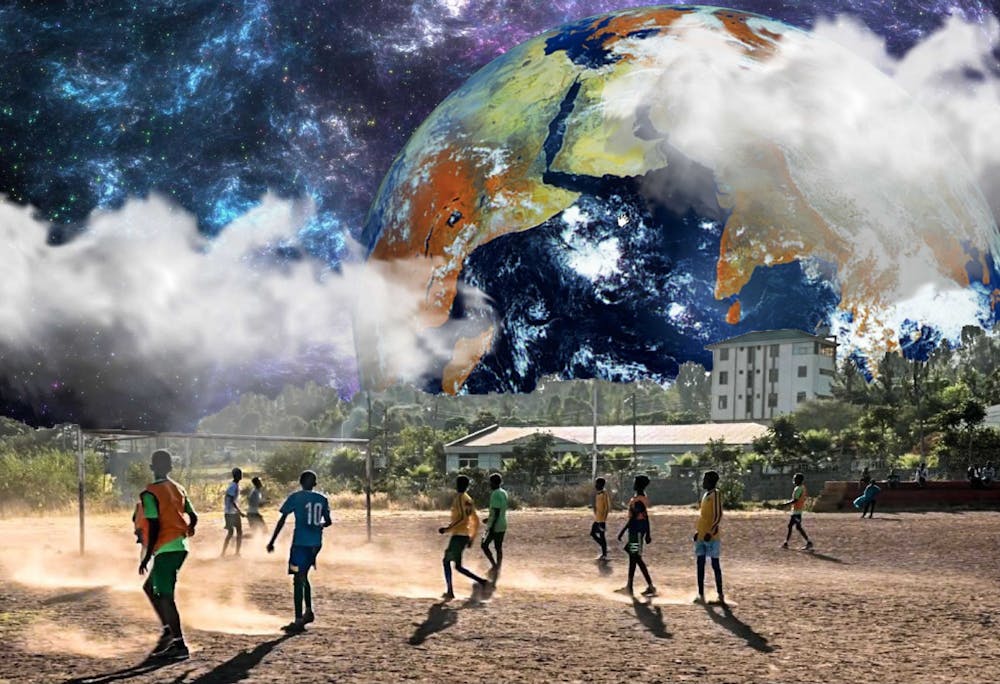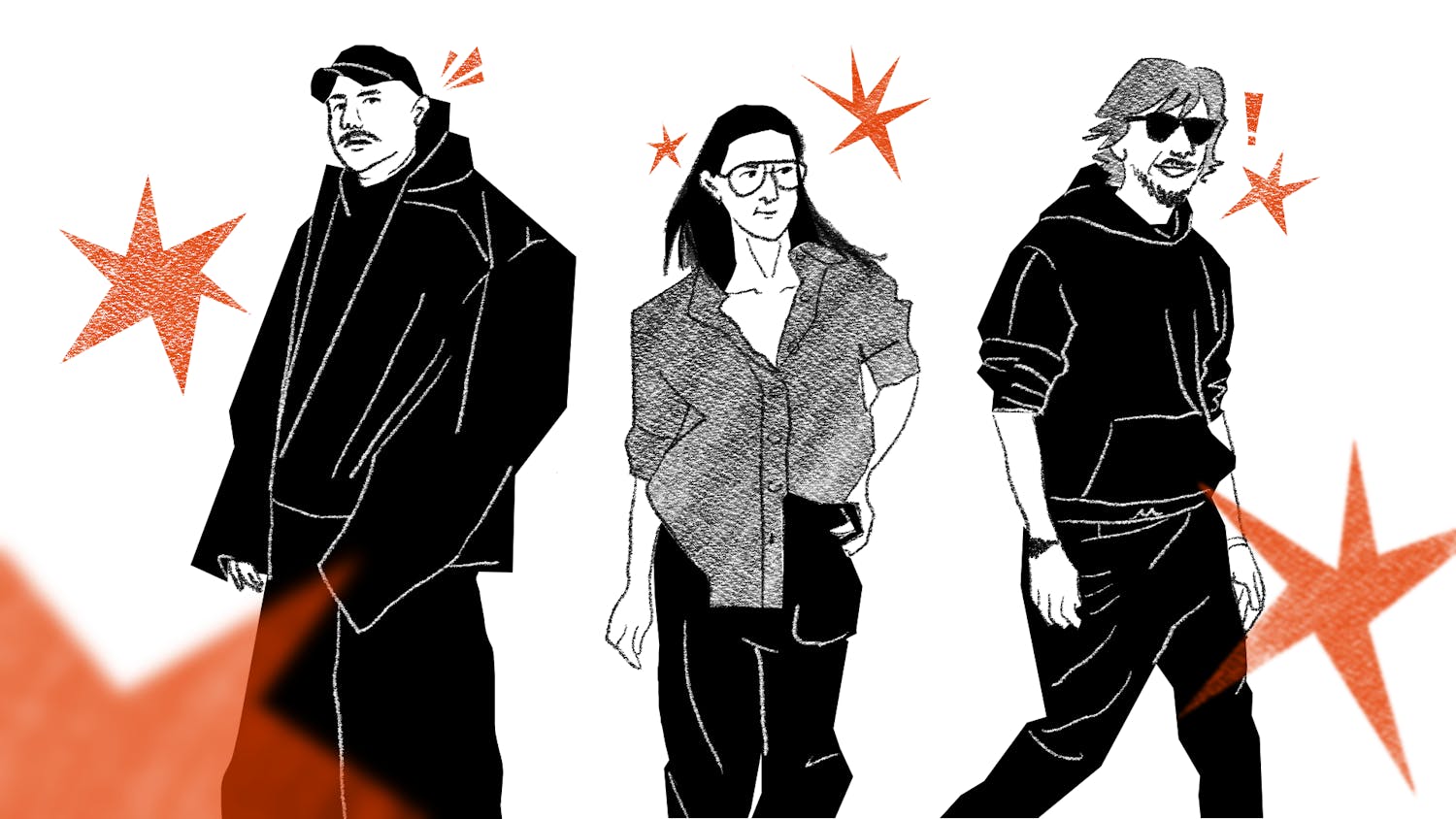Sitotaw is the head of a synagogue. Getu is the coach of a winning soccer team. Inoa is a middle school student, a teen activist, and one of the founding members of a circus troupe.
They’re different ages and have different interests and personalities. But the minute we see stories about people from faraway countries on social media or learn about them from headlines, their identities become negligible. We lump them together into one collective tragedy, a community to be pitied for their stories rather than individuals with voices and aspirations.
The documentary short Dreaming of Jerusalem shows audiences that there’s more to the Ethiopian Jewish population in Gondar and Addis Ababa than a sob story.
For 2,000 years until the mid–1800s, the Jewish population in Ethiopia was largely exiled from the global Jewish community. Due to Israel’s Law of Return, which allows Jews across the world to move to the country and gain citizenship if they can prove their Jewish heritage, over 85,000 members of the Ethiopian Jewish community have immigrated to Israel in the last half–century—excluding 14,000 Ethiopians in Gondar and Addis Ababa.
In the late 19th century, Christian missionaries converted a large portion of the population in Gondar and Addis Ababa to Christianity. Though the community returned to the practice of Judaism long ago, many still can't move to Israel due to the conversion of their ancestors, which has led some in the global Jewish community to question their Judaism.
Ethiopian Jews face discrimination from all sides: They’re isolated within Ethiopia due to their Jewish identity, and they’re also separated from the Jewish community in Israel.

Photo from Dreaming of Jerusalem
Jewish people in Gondar and Addis Ababa have dreamed of immigrating to Jerusalem, the Holy Land, for thousands of years. Eighty percent of the community have family in Israel that they hope to one day be reunited with.
In Dreaming of Jerusalem, tears stream down Sitotaw’s face as he tells his story: “When parents and family call from Israel, the people are in tears. Their troubles are very harsh. My mother and father are both in Israel. Earlier this year, my dad called me and told me he was really sick. My father is still sick and bedridden.”
Dreaming of Jerusalem is co–directed by Peter Decherney and Sosena Solomon, and it premiered on March 30 on Discovery+.
Decherney is the director of the Cinema and Media Studies Program at Penn and a professor in the Department of English. The award–winning filmmaker, author, and teacher worked for a program in Israel during his first year of college, where he met many Ethiopian Jews who had recently immigrated. He’s been following the story of the Ethiopian Jewish population ever since.
Solomon is an award–winning social documentary film and multimedia visual artist from Ethiopia. She’s a freelancer who lectures in the Fine Arts Department at Penn’s Stuart Weitzman School of Design.
“Being Ethiopian, I grew up hearing stories about this community. It’s really a part of our history,” says Solomon. “I'm not Jewish, but my grandmother was born in Gondar, where we were during filming. I have a growing interest in how they’ve been able to preserve their spirituality for so long … Their togetherness and ability to maintain such a powerful spiritual practice is the core of their joy.” She’s made several documentaries in Ethiopia in the past, and she had wanted to film the Ethiopian Jewish community’s story for her graduate school thesis years ago.
When Decherney and Solomon met at Penn, they quickly discovered their shared interests. “We realized how hard it is to learn more about the people at the center of this story who are actually living in Gondar and Addis Ababa right now. So many debates about immigration often become big political stories about demographics, economics, and policy. We wanted to learn more about the people that are affected by this policy,” Decherney says.

Photo Courtesy of Peter Decherney
Decherney and Solomon began seeking funding and planning the film in the spring of 2019. They traveled to Ethiopia for several weeks that summer to research, gather a few clips, and build trust with the community.
They returned to Ethiopia in January 2020 to shoot the film. Filming lasted several weeks, allowing them to form close relationships.
“We stood out. They looked at us all the time—it took a while for them to be comfortable with us, and for them to think of us as just flies on the wall there to observe them,” Decherney says. “It was the unexpected things that really drew us … It was the experience of getting to know people and following the stories as they unfolded.”
One of these unexpected aspects is the circus troupe that Inoa co–founded. In the film, the young students dance, jump, and flip across the screen to applause, their enthusiasm written across their faces in smiles. They perform acrobatics, walk on stilts, juggle, and train with other circus equipment every day of the week aside from the Sabbath on Friday and Saturday.
“I enjoy the circus and want to take it seriously, just like I take my faith seriously,” Inoa says during the film.
“The longer we stayed there and became more a part of the fabric of the space, the more we discovered just how unique this community was," says Solomon. "We didn't know that we were going to encounter such amazing and vibrant different aspects of their livelihood."

Photo of Inoa from Dreaming of Jerusalem
Both were amazed by the stories of many members of the community, but they were limited by the short length of the film, which runs at 25 minutes. The filmmakers had so much material—the challenge was consolidating it into a product that would keep audiences’ attention, which they ultimately did through the stories of five individuals during the film.
The directors still follow the lives of many people they spoke to, though Decherney explains that this is difficult since they don’t have cell phones or email. Their local producer in Gondar, Hailu Fantahun, helps them stay in touch.
Rich Ross (C '83), former chairman of Walt Disney Studios and former group president of the Discovery Channel, was in his car in February 2020 when he received a call from Decherney. Decherney asked if Ross might be interested in being the executive producer for Dreaming of Jerusalem. They’d recently finished filming and were looking for help with funding, editing, distribution, and marketing.
Ross didn’t hesitate to join Dreaming of Jerusalem’s team. The moment he saw the first assembly of the film, he knew he’d made the right decision.
“This is very much an issue film. Those are perilous to work on because they often don’t work—they require a storytelling that activates, but activating sympathy is really not enough. You have to activate for action,” Ross says. “It’s one thing to talk about something and another to actually do something about it. I think the film is certainly effective in that it makes people feel something, but it also creates a path that makes them want to do something.”
Ross, Decherney, and Solomon brought different talents and perspectives to the film. Melisande McLaughlin (C '20), the co–producer and sound director, explains that though both Decherney and Solomon have experimental filmmaking backgrounds, Solomon’s style is more impressionistic. Their collaboration ultimately created a film that feels both free and structured: It lacks the voiceovers and clear narrative direction of traditional documentaries, but the unified stories of the Ethiopian Jews they interviewed create a "through–line in the film," according to McLaughlin.
McLaughlin also notes Decherney’s drive to show the lives of the Ethiopian Jewish community in a new light.
“So many documentaries decide that despair sells, so they go with that. This film … gives [the Ethiopian Jewish population] value as people beyond their story and allows you to see them as more than just people in despair,” McLaughlin says. “That is something that Peter brings—he doesn’t want it to necessarily be an argument. He wants it to be about getting to know the community and see the people.”

Photo of Getu with this team from Dreaming of Jerusalem
Part of the film that demonstrates this is the story of the soccer coach Getu, who has led the children’s soccer team to several victories and two trophies, despite blatant discrimination in tournaments. As the camera chases the young soccer players across the field, Getu explains that had one of their games not been scheduled on the Sabbath, the team would have had three trophies: “We forfeited that game because we cannot play on a Saturday. It was published in newspapers, and on TV here, and even in Israel."
"The other teams know we are Jews. Some of them call us names or throw stones. When we won our second trophy, our team was beaten up," he says. "But we go through these challenges as a team."
In post–production, Ross brought a sense of candor to the process.
“Peter would say I’m brutally honest, which is because I care deeply about getting it right. That is why it worked out well having all three of us,” Ross says. “I’m not the director of the film—they are two really talented directors, and my job is to make sure that their voice is understood and then heard.”
Before its March 30 premier on Discovery+, the documentary had a brief run at festivals like the Halifax Black Film Festival. Ross notes that the film is unique in that it qualifies for both Black and Jewish film festivals. Just as the Ethiopian Jewish community stands in the middle of two nations, Dreaming of Jerusalem bridges the divisions that typically separate film.
“Film has a certain power to connect us to other people, to bring individuals to life, and to put flesh on what seem like abstract debates about religion, politics, or policy,” Decherney says. “These debates about immigration within Israel are really active, and I think there’s an opportunity to allow the film to make an impact in these discussions.”
“I want this film to facilitate powerful dialogue, curiosity, and knowledge. I want it to have an afterlife so that people know that this community does exist, they are valid, and they are real Jews. I want there to be intellectual discussion that can promote inspiration, understanding, and compassion,” says Solomon.
Much has changed in Gondar and Addis Ababa in the short time since the Dreaming of Jerusalem team traveled there. The COVID–19 pandemic, as well as a violent push for secession in the Tigray Region of Ethiopia, has left the entire country in upheaval.
But not everything has been dire for Ethiopia’s Jewish population. In the time since the documentary was filmed, Pnina Tamano–Shata became the first Ethiopian–born minister of immigration in Israel. In 2020, she passed legislation permitting 2,000 members of the community to immigrate to Israel.
Sitotaw, the synagogue leader, was on the first plane.

Photo from Dreaming of Jerusalem
“As an optimist, I guess [the film] is about individuals who create change and create movements," Ross says. "No one in a million years thought that an Ethiopian Jew would be in the Knesset, running the immigration program. That was impossible. But it is possible. Change happens because individuals believe they can make it happen, and enough people believe in them."
When asked to describe the film in a singular phrase, McLaughlin answers, “The universal within the specific.”
“Everyone, everywhere, is the same fundamentally. They’re just people, like you or me. There are universal things about everyone no matter where you go, no matter what their story is,” she explains.
Sitotaw is the head of a synagogue. Getu is the coach of a winning soccer team. Inoa is a middle school student, a teen activist, and one of the founding members of a circus troupe.
They are part of a community united by a shared desire to immigrate and be reunited with their families, but also by shared faith and joy.





